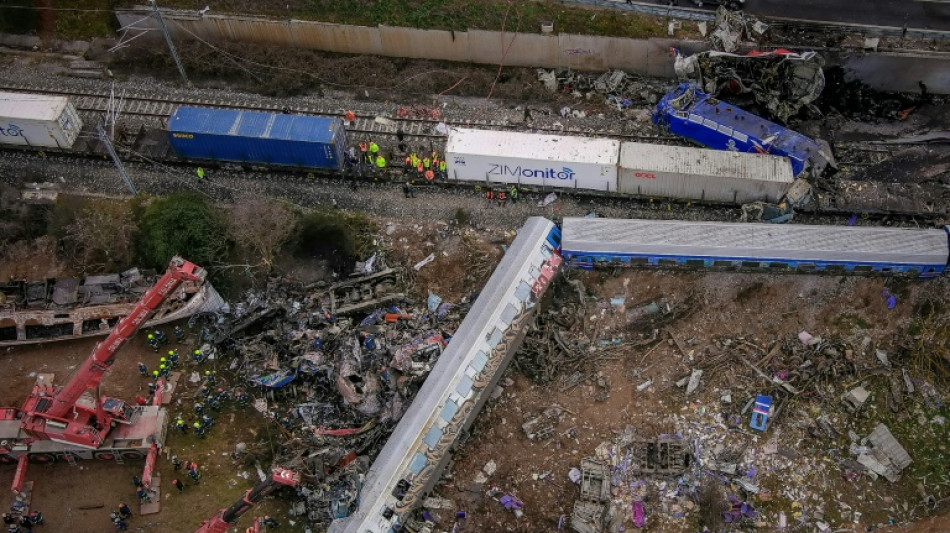
-
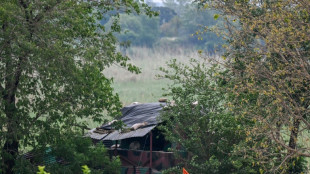 Lives on hold in India's border villages with Pakistan
Lives on hold in India's border villages with Pakistan
-
Musk's dreams for Starbase city in Texas hang on vote
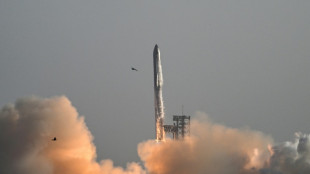
-
 Rockets down Warriors to stay alive in NBA playoffs
Rockets down Warriors to stay alive in NBA playoffs
-
Garcia beaten by Romero in return from doping ban

-
 Inflation, hotel prices curtail Japanese 'Golden Week' travels
Inflation, hotel prices curtail Japanese 'Golden Week' travels
-
Trump's next 100 days: Now comes the hard part

-
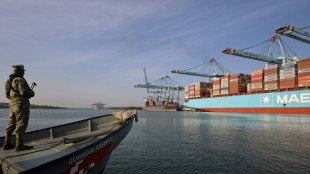 Mexican mega-port confronts Trump's tariff storm
Mexican mega-port confronts Trump's tariff storm
-
Trump's tariffs bite at quiet US ports
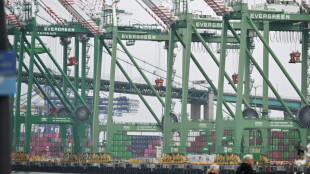
-
 Ryu stretches lead at LPGA Black Desert Championship
Ryu stretches lead at LPGA Black Desert Championship
-
Singapore votes with new PM seeking strong mandate amid tariff turmoil

-
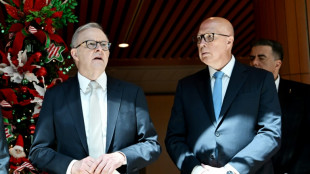 Five things to know about the Australian election
Five things to know about the Australian election
-
Scheffler fires 63 despite long delay to lead CJ Cup Byron Nelson
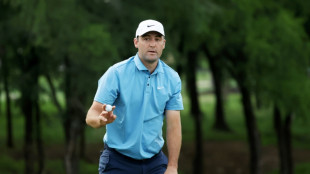
-
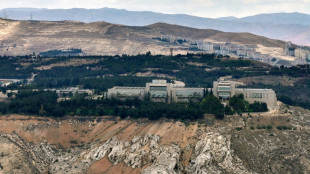 Israel launches new Syria strikes amid Druze tensions
Israel launches new Syria strikes amid Druze tensions
-
Finke grabs 400m medley victory over world record-holder Marchand
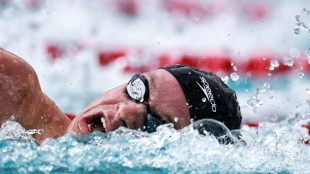
-
 Apple eases App Store rules under court pressure
Apple eases App Store rules under court pressure
-
Polls open in Australian vote swayed by inflation, Trump

-
 Russell clocks second fastest 100m hurdles in history at Miami meeting
Russell clocks second fastest 100m hurdles in history at Miami meeting
-
Germany move against far-right AfD sets off US quarrel

-
 Billionaire-owned Paris FC win promotion and prepare to take on PSG
Billionaire-owned Paris FC win promotion and prepare to take on PSG
-
Teenager Antonelli grabs pole for Miami sprint race

-
 Man City climb to third as De Bruyne sinks Wolves
Man City climb to third as De Bruyne sinks Wolves
-
Mercedes' Wolff backs Hamilton to come good with Ferrari

-
 'Devastated' Prince Harry says no UK return but seeks reconciliation
'Devastated' Prince Harry says no UK return but seeks reconciliation
-
Elway agent death likely accidental: report

-
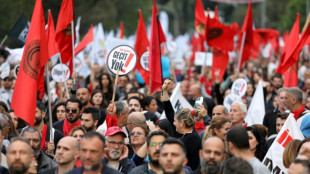 Turkish Cypriots protest new rule allowing hijab in school
Turkish Cypriots protest new rule allowing hijab in school
-
Germany's AfD dealt blow with right-wing extremist label

-
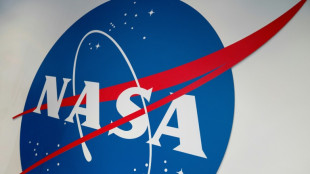 Trump NASA budget prioritizes Moon, Mars missions over research
Trump NASA budget prioritizes Moon, Mars missions over research
-
Hard-right romps through UK polls slapping aside main parties

-
 Rangers hire two-time NHL champion Sullivan as coach
Rangers hire two-time NHL champion Sullivan as coach
-
Haaland on bench for Man City as striker returns ahead of schedule

-
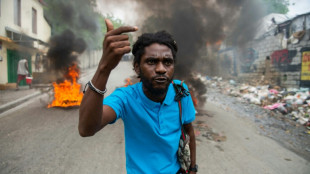 US designates two Haitian gangs as terror groups
US designates two Haitian gangs as terror groups
-
Lower profits at US oil giants amid fall in crude prices

-
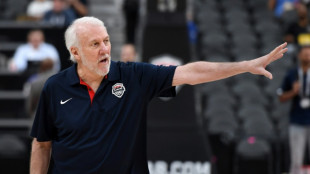 NBA icon Popovich stepping down as Spurs coach after 29 seasons
NBA icon Popovich stepping down as Spurs coach after 29 seasons
-
'Devastated' Prince Harry says no return to UK but seeks royal reconciliation

-
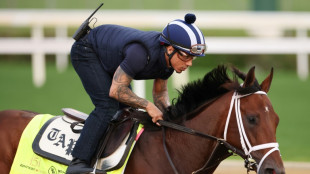 Grande scratched from Kentucky Derby
Grande scratched from Kentucky Derby
-
Carney vows to transform Canada economy to withstand Trump
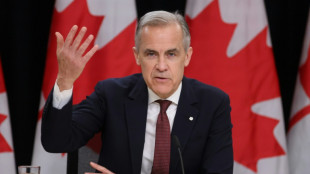
-
 Prince Harry says he would 'love' to reconcile with family
Prince Harry says he would 'love' to reconcile with family
-
Major offshore quake causes tsunami scare in Chile, Argentina
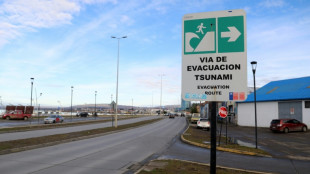
-
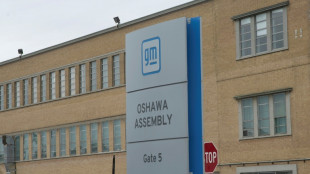 GM cuts shift at Canada plant over 'evolving trade environment'
GM cuts shift at Canada plant over 'evolving trade environment'
-
F1 extends deal to keep Miami GP until 2041

-
 Popovich mixed toughness and spirit to make NBA history
Popovich mixed toughness and spirit to make NBA history
-
US asks judge to break up Google's ad tech business

-
 Trump eyes huge 'woke' cuts in budget blueprint
Trump eyes huge 'woke' cuts in budget blueprint
-
Ruud downs Cerundolo to book spot in Madrid Open final

-
 Gregg Popovich stepping down as San Antonio Spurs coach after 29 seasons: team
Gregg Popovich stepping down as San Antonio Spurs coach after 29 seasons: team
-
Guardiola to take break from football when he leaves Man City

-
 Vine escapes to Tour of Romandie 3rd stage win as Baudin keeps lead
Vine escapes to Tour of Romandie 3rd stage win as Baudin keeps lead
-
Olympic 100m medalist Kerley arrested, out of Miami Grand Slam meet

-
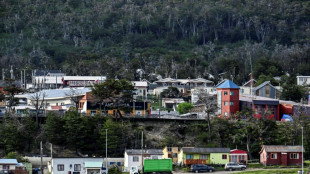 Chile, Argentina order evacuations over post-quake tsunami threat
Chile, Argentina order evacuations over post-quake tsunami threat
-
Arteta 'pain' as Arsenal fall short in Premier League title race
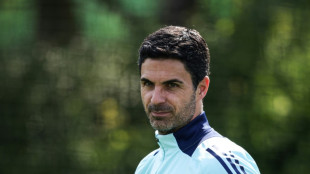

Greek train tragedy sheds light on chronic state failures
The train tragedy that unfolded in Greece this week, claiming dozens of lives in the country's worst rail disaster, has exposed chronic failures by successive administrations, insiders say.
This was a crash that was waiting to happen, they argue.
A passenger train with over 350 people on board ran for several kilometres on the same track as an incoming freight train, reportedly after the station master in the central city of Larissa failed to reroute one of the trains.
The 59-year-old, who has been charged with negligent homicide, has admitted partial responsibility for the accident. But there were other factors in play, his lawyer said Thursday.
"My client has assumed his share of responsibility," said Stefanos Pantzartzidis. "But we must not focus on a tree when there is a forest behind it."
State TV ERT has reported that the station master was only appointed to the post 40 days ago after a training course that lasted just three months.
- Decades of mismanagement -
For decades, Greece's 2,552-kilometre (1,585-mile) rail network has been plagued by mismanagement, poor maintenance and obsolete equipment.
Though the country's mountainous terrain is not conducive to extensive rail networks, it's no coincidence that most Greeks prefer to travel by car, bus or ferry.
Accident analyst Konstantinos Hasiotis says there have been long delays in installing an electronic train safety radar system, which Greece originally acquired two decades ago.
"Responsibility must be assumed by all those who managed the modernisation of the network," Hasiotis told AFP.
The chairman of the union of train drivers, Kostas Genidounias, said his organisation would soon release proof of political responsibility for safety failings.
"There are many documents that we will make public," he said, adding that because electronic safeguards have not been operational since the year 2000, train control was still handled "manually".
With Prime Minister Kyriakos Mitsotakis hoping to secure re-election in ballots expected next month, the government has been quick to seize upon the station master's error, and point to the failings of past administrations.
"I believe the responsibility, the negligence, the error has been confessed by the station master," government spokesman Yiannis Economou said Thursday.
But he also admitted "delays" in installing safety safeguards on the route where the accident took place, a result of "chronic malaise and decades of failure" in state management.
- Network in 'poor condition' -
The accident has also exposed a confusing mix of responsibilities between private rail operator Hellenic Train -- the state company OSE that still owns the track network -- and a state watchdog nominally tasked with oversight.
"The network is in poor condition -- but we do not inspect its condition," the head of Greece's railroad regulatory authority RAS Ioanna Tsiaparikou told state TV ERT on Thursday.
Hellenic Train this week also noted that "the railway network and railway traffic are managed by OSE, a Greek state company".
Already in January, Tsiaparikou had said the rail network was poorly maintained and engines were outdated. She also highlighted a shortage of staff, noting that some stations lay empty.
Three weeks ago, trade unionists representing train staff on the board of Hellenic Train also warned of "grave" staff shortages.
In December, the RAS watchdog fined Hellenic Train 300,000 euros after more than 800 passengers were left stranded in harsh weather conditions during a cold snap almost a year earlier.
Last month, the European Commission referred Greece to the EU's Court of Justice for failing to sign and publish an agreement with OSE required under a 2012 directive, in the interests of transparency.
Though the directive was not specifically related to safety issues, a Commission spokesman on Thursday noted that the EU had already backed 16 railway projects in Greece since 2014 with nearly 700 million euros ($741 million).
- Stalled modernisation -
Greece's Transport Minister Kostas Karamanlis, who resigned within hours of the disaster, acknowledged that government efforts to improve conditions over the last three and a half years "were sadly not enough to prevent such an accident".
Greek media published a letter from the former head of the European Rail Traffic System (ERTMS) in Greece, Christos Katsioulis, in which he said that infrastructure upgrades pending since 2016 were incomplete. Train speeds of up to 200 kilometres (124 miles) an hour were unsafe, he warned.
Katsioulis resigned last year.
"Until 2010, there was some modernisation of rail network signals, but during the financial crisis, the safety systems began to collapse," recalls OSE advisor Panagiotis Terezakis.
A tender to upgrade the rail network in northern Greece had been scheduled to be launched later this month.
M.Fischer--AMWN